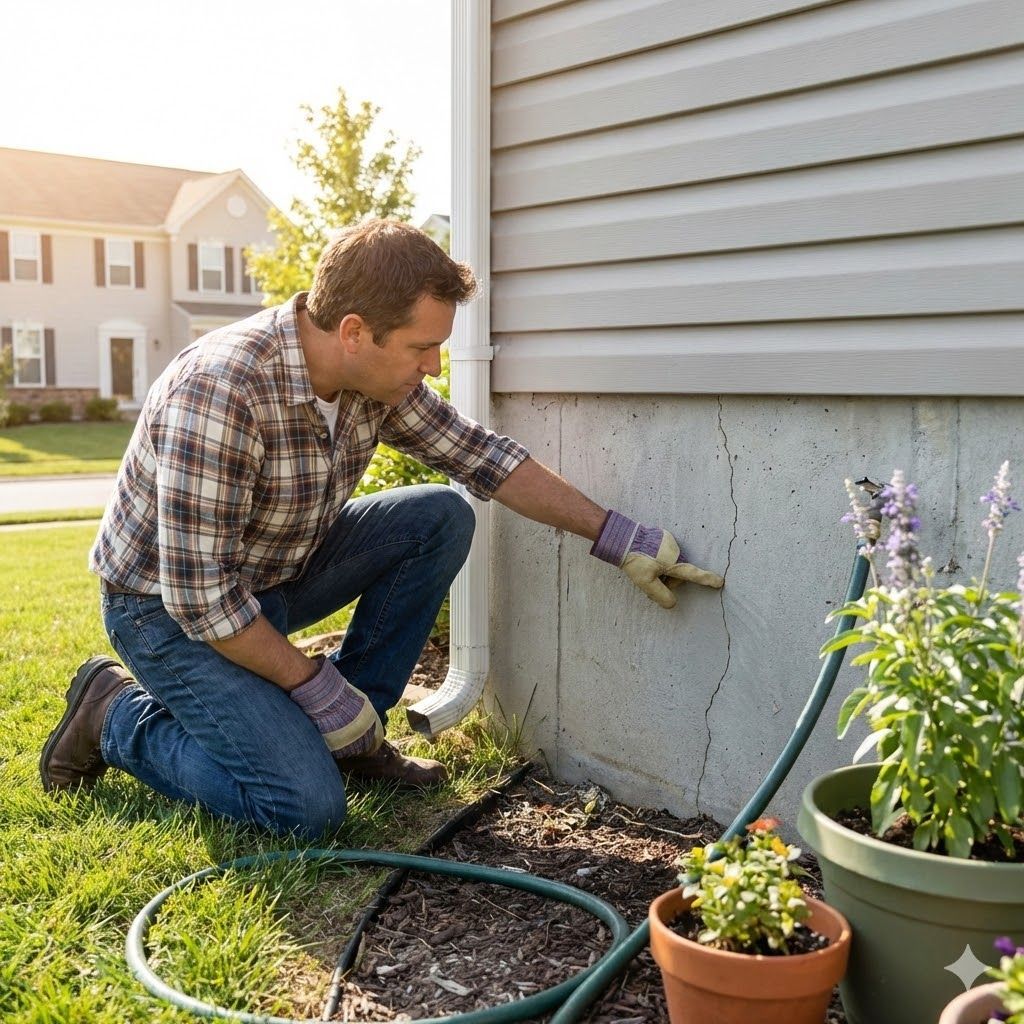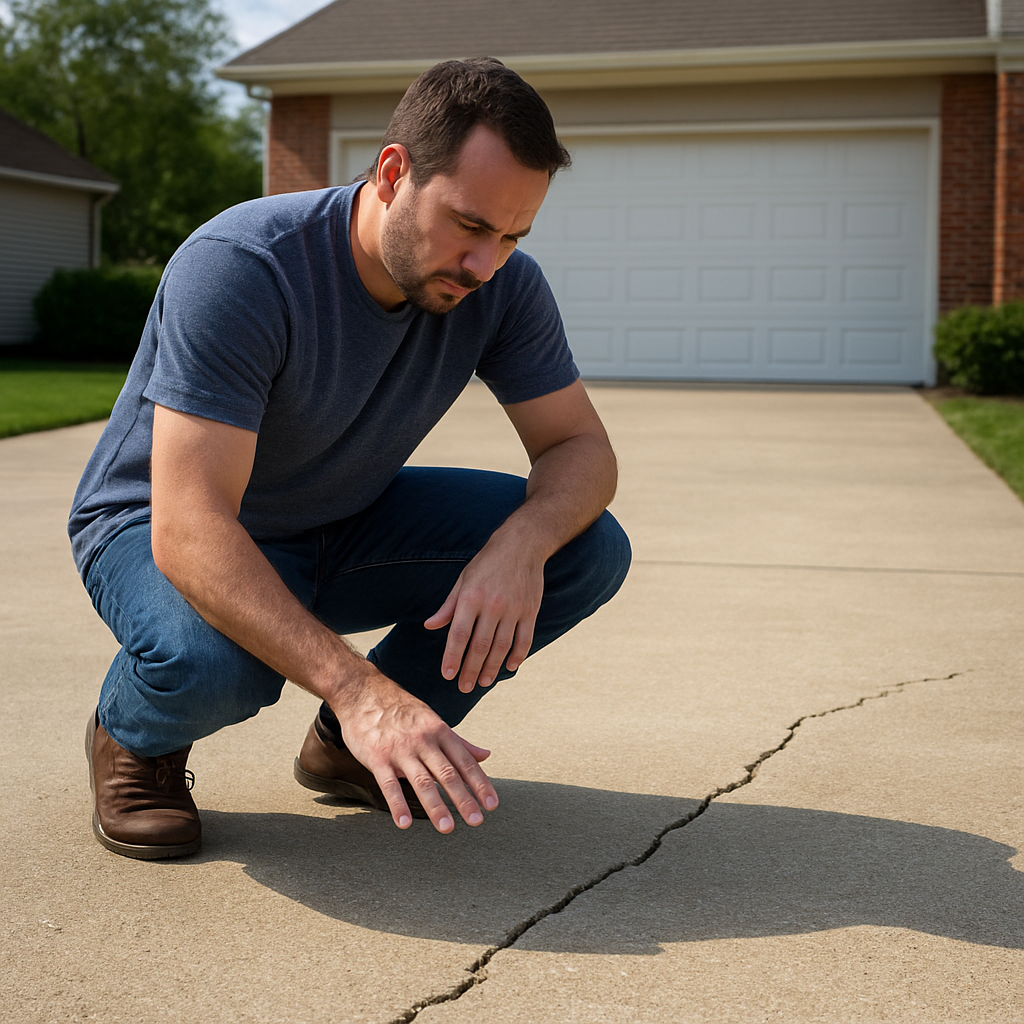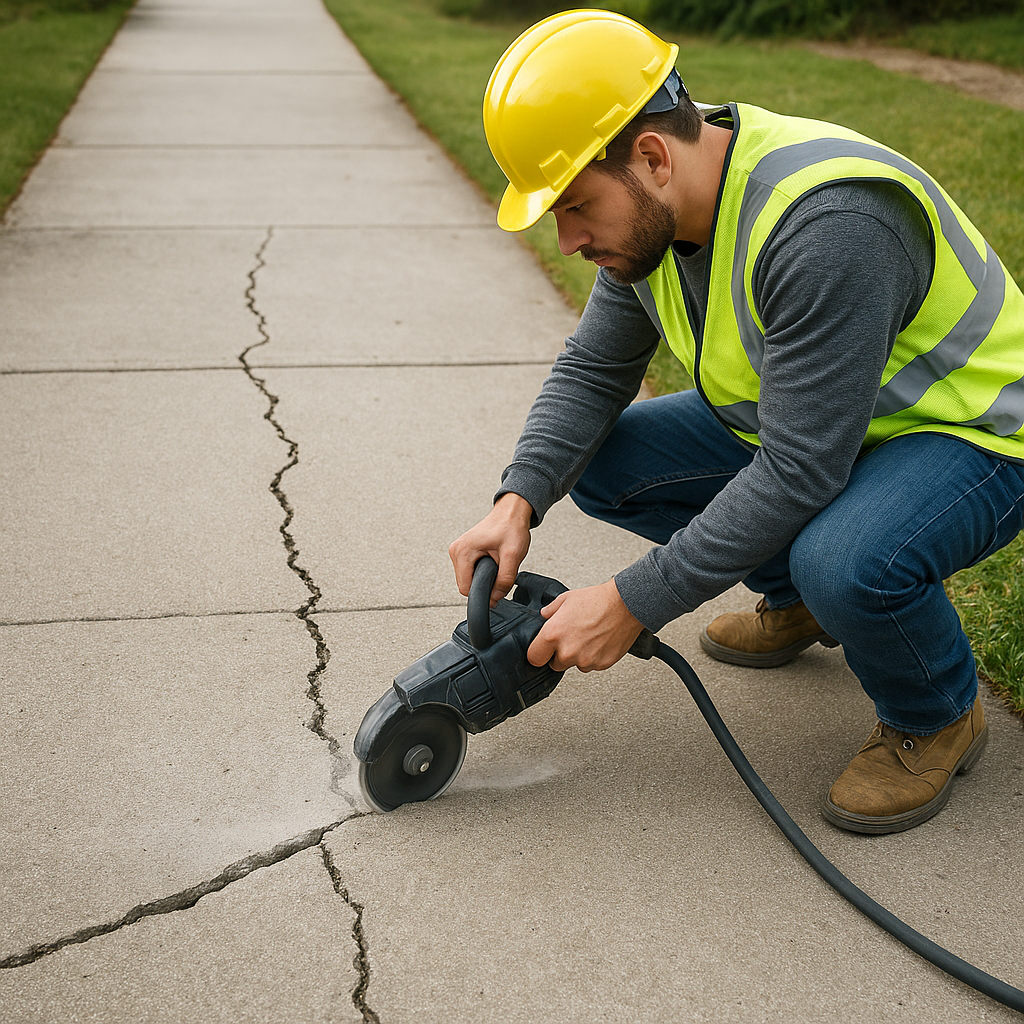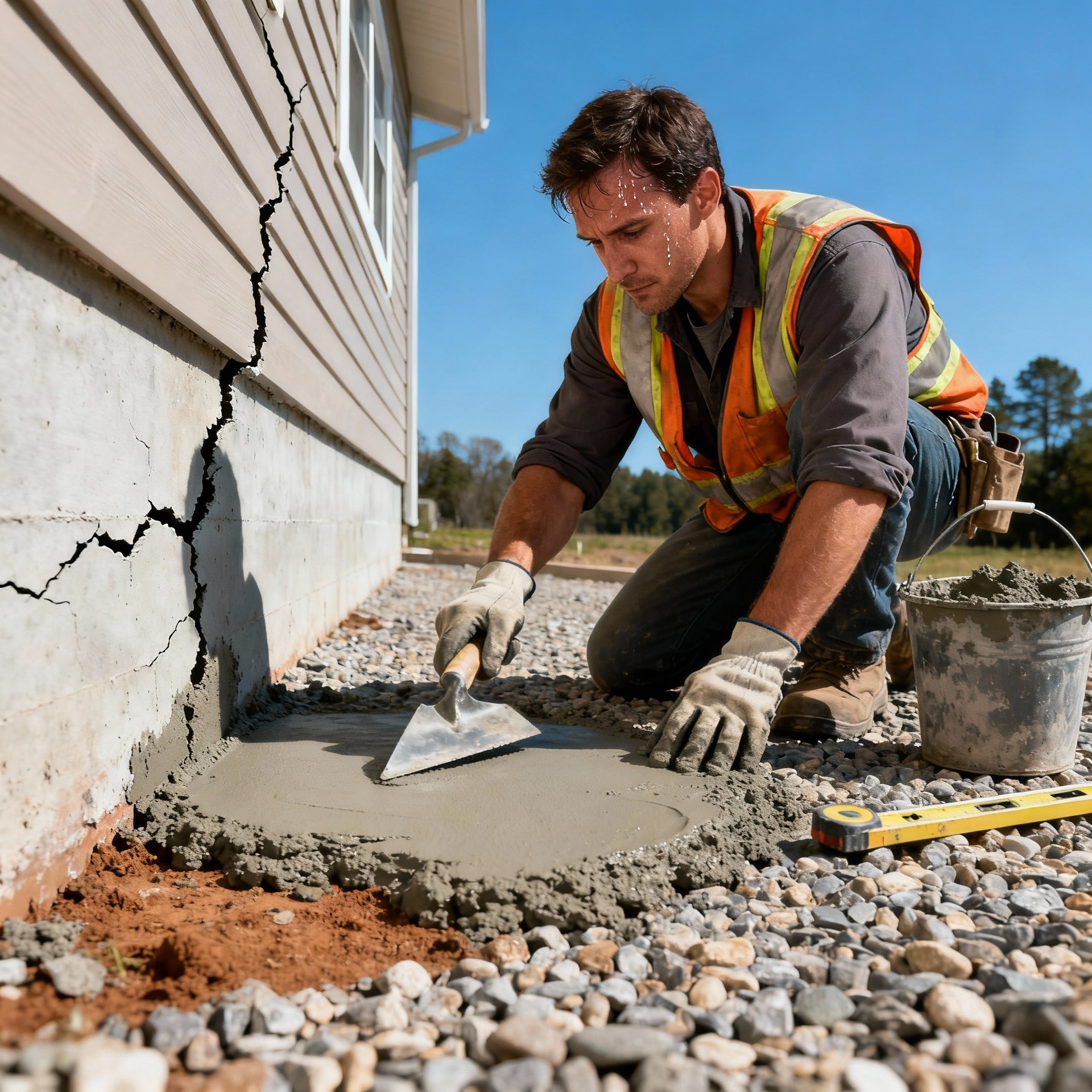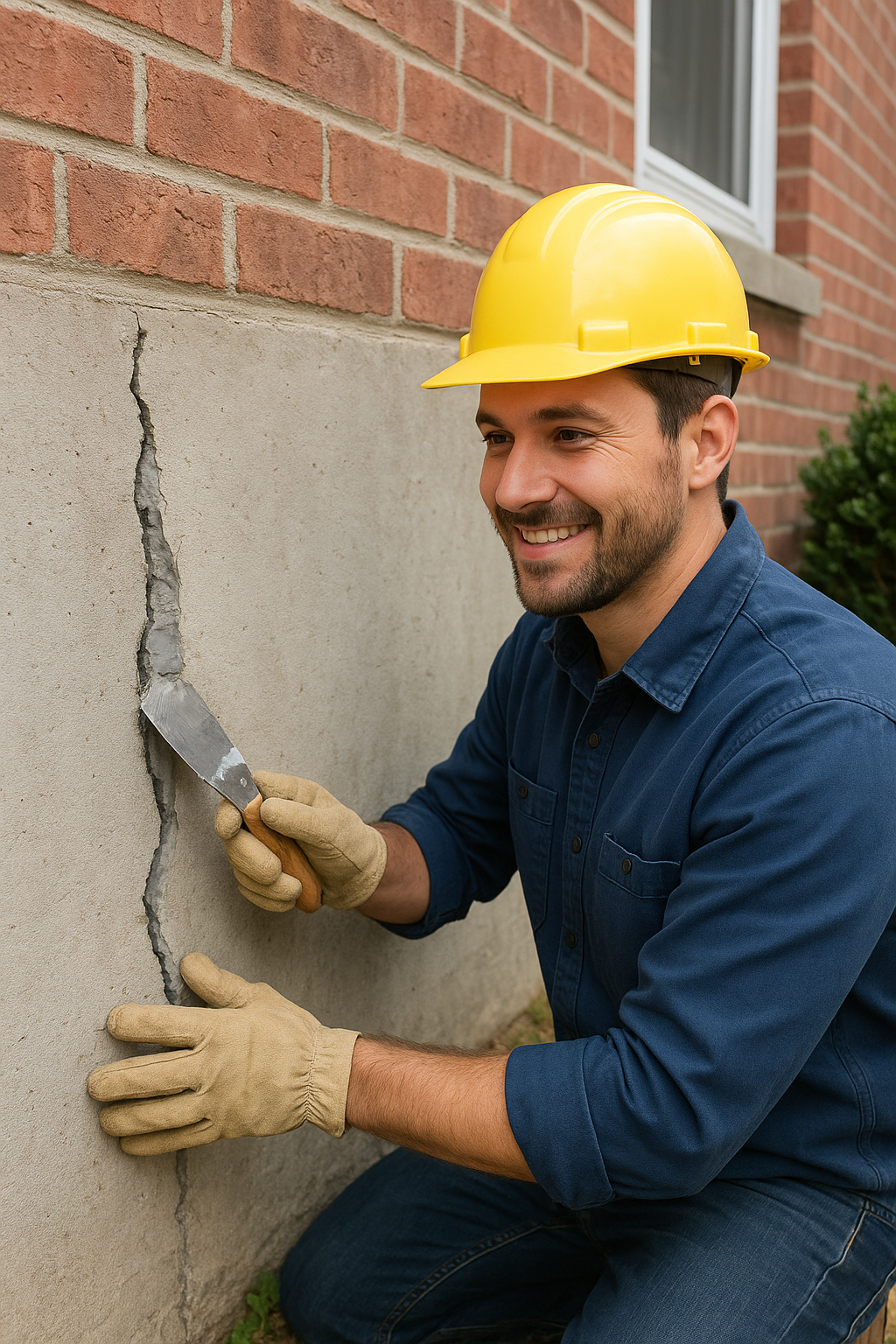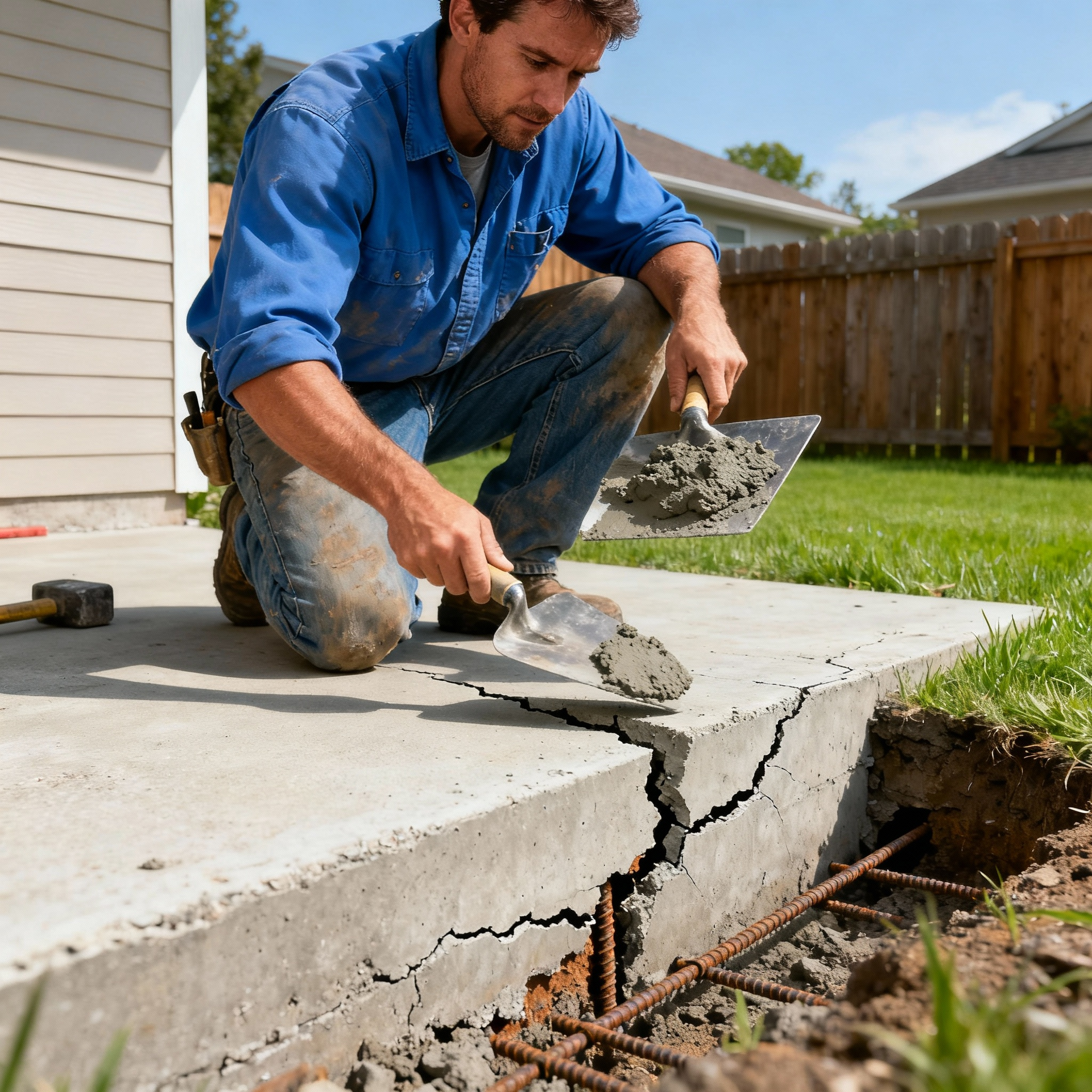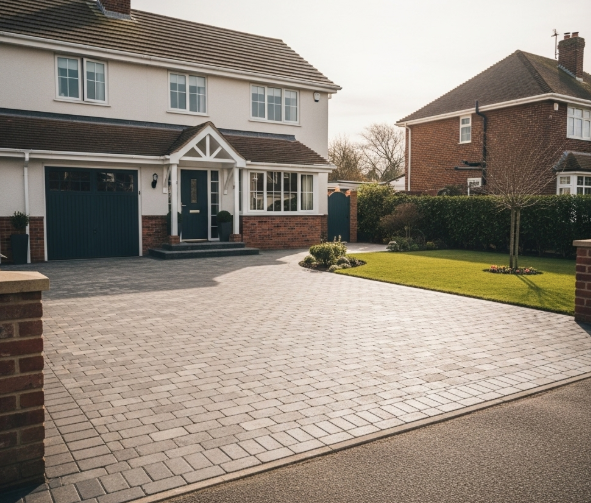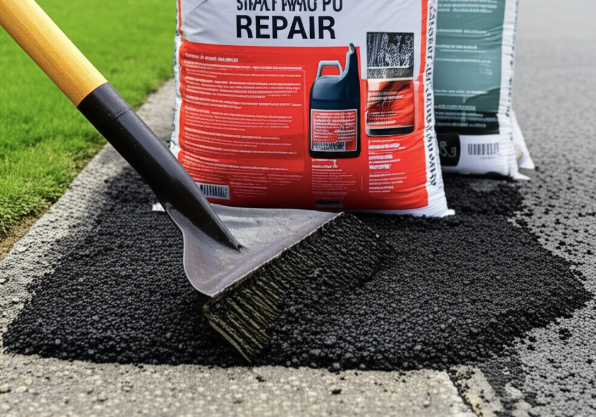Concrete vs. Epoxy: Choosing the Right Foundation Crack Repair for Your Home's Foundation
The foundation is arguably the single most important component of your home. It’s the shield that bears the full weight of the structure, and when cracks appear, it can trigger a wave of worry for any homeowner. Whether you’re seeing thin vertical lines or wider, more concerning fissures, the question remains: what is the best way to fix them? The decision often boils down to two main approaches: the traditional cementitious patching method (which we will refer to as
concrete repair) or the modern chemical solution of
epoxy injection.
As
Foundation Repair Specialists, our goal is to provide you with a professional, comprehensive comparison that not only addresses the surface-level issues but the structural integrity of your home. This guide will walk homeowners through the pros, cons, and applications of both concrete and epoxy options, ensuring you can make an informed choice that secures your home's future.
Understanding the Enemy: Why Do Concrete Foundations Crack?
Before diving into repair methods, it is crucial to understand
why your
concrete foundation cracked in the first place. A repair is only as good as its ability to address the root cause. Cracks in a
concrete foundation are typically grouped into two categories: non-structural and structural.
Non-Structural Cracks (The Common Settling
These are usually hairline cracks, vertical or diagonal, that appear within the first year after a home is built. They are often a result of concrete shrinking as it cures—a natural part of the process. They are rarely a structural threat but can still lead to water leaks and moisture problems, making
basement waterproofing a concern.
Structural Cracks (The Red Flag)
These cracks are wider than a quarter-inch, often horizontal, stair-stepped, or growing over time. They are a red flag for significant issues like
foundation settlement, heavy hydrostatic pressure from surrounding soil, or poor construction. Addressing these requires a professional, structural-grade solution.
Foundation Crack Repair: The Concrete Patching Method
The term "concrete repair" in the context of cracks often refers to traditional cementitious materials, such as hydraulic cement or various patching compounds. This method is the long-standing, traditional fix that many homeowners consider for simple fixes.
What is Concrete Patching?
Concrete patching involves grinding out the crack and then filling it with a quick-setting, cement-based mortar or hydraulic cement. Hydraulic cement is specifically designed to stop water in its tracks as it sets very quickly, even when mixed with water that is actively flowing from a leak.
Pros and Cons of Concrete Patching
Pros and Cons of Concrete Patching
Pros
Cost-Effective: Materials are inexpensive and can be a DIY project for small, non-leaking cracks.
Quick Water Stop: Hydraulic cement can stop actively flowing water almost instantly.
Easy to Apply: It requires less specialized equipment than injection methods.
Cons
Non-Structural: Hydraulic cement does not bond the crack back together. It's essentially a plug.
No Flexibility: It cannot accommodate future movement or shifting of the foundation, making it a temporary solution.
Will Eventually Fail: As the foundation naturally moves (which it always does), the rigid hydraulic cement plug will crack and fail, often leading to a renewed leak.
For minor, non-structural, and non-leaking surface imperfections, a concrete patch may offer a cosmetic fix. However, for any crack that is leaking or has any potential to impact the structural integrity of your home, this method is simply a
temporary patch.
The Advanced Solution: Epoxy Injection for Foundation Repair
Epoxy injection is the gold standard when it comes to permanently welding a cracked concrete structure back together. This is a high-performance method recommended by
Foundation Repair Specialists for both structural cracks and cracks prone to future movement.
What is Epoxy Injection?
Epoxy injection involves forcing a low-viscosity, high-strength epoxy resin deep into the crack under pressure. The epoxy penetrates the full depth and width of the crack, creating a bond stronger than the original concrete.
Pros and Cons of Epoxy Injection
Pros
Structural Integrity Restoration: Epoxy is a structural adhesive that literally welds the crack back together, restoring the original strength of the foundation wall.
Permanent Fix: Because it bonds the concrete together and has superior strength, it is considered a permanent repair for non-moving, structural cracks.
High Strength: Structural epoxies often cure to strengths exceeding the original concrete's strength (often over 10,000 psi).
Cons
Not Ideal for Leaks (Immediately): Traditional structural epoxy is slower to cure and may not effectively seal an actively gushing leak.
Requires Expertise: This is not a DIY job. Specialized injection equipment and professional knowledge are required to ensure the epoxy penetrates the full wall thickness.
Cost: The material and labor cost are higher than simple patching.
Epoxy is the right answer when your primary concern is to restore the structural strength of the
concrete foundation. This is especially true for wide or actively growing cracks that suggest a serious threat to the
structural integrity of your home.
A Critical Distinction: Epoxy vs. Polyurethane
While the blog title compares 'Concrete vs. Epoxy', a third material—polyurethane foam—is often used by professionals alongside epoxy, and it's essential for homeowners to know the difference.
- Epoxy (Structural): Rigid and Strong. Best for dry cracks where the goal is to rebond the wall for structural purposes.
- Polyurethane (Flexible/Waterproofing): Flexible and Waterproof. Best for actively leaking or damp cracks. The polyurethane foam expands upon contact with water, creating a flexible, waterproof seal that can move with the foundation. This is the optimal method for resolving a leaking foundation crack without excavation.
For many homeowners, the best solution involves both: polyurethane for a waterproof seal and/or epoxy for a structural repair, especially when dealing with cracks caused by hydrostatic pressure. Consulting a local expert is the only way to determine the correct application. We invite you to learn more about this specialized service on our Concrete Foundation Repair Service in Youngstown, OH page.
Key Considerations for Homeowners: When to Choose What
The choice between a concrete patch and an epoxy injection depends on two main factors: the cause of the crack and its severity.
1. Structural vs. Non-Structural
- If the crack is structural: Choose Epoxy Injection. This is the only method that restores the wall's structural load-bearing capacity. If the crack is moving, a Foundation Repair Specialist may recommend a combination of structural repair and external stabilization (like carbon fiber strapping or helical piers).
- If the crack is non-structural and leaking: Choose Polyurethane Foam Injection. This seals the crack flexibly to prevent water intrusion (essential for basement waterproofing) without needing structural rebonding.
- If the crack is cosmetic and dry: A simple concrete patch may suffice, but be aware that it will not prevent a future leak if the cause of the crack is not addressed.
2. Cost and Long-Term Value
While the material and labor for simple concrete patching are cheaper than a professional injection, the long-term value tells a different story.
Statistic (Source: This Old House)
“While a hairline crack caught early might cost around $200-$800 to repair, waiting until it has widened and caused structural issues could push repairs into the $10,000–$15,000 range or higher.”
Export to Sheets
Investing in a proper repair—like a professional epoxy or polyurethane injection—prevents a minor issue from snowballing into a major, five-figure
foundation repair nightmare. The cost for a professional crack injection typically ranges from $300 to $1,000 per crack, which is a small price to pay for securing your home’s
structural integrity.
The Expert's Perspective
The main difference between a quick-fix and a permanent solution comes down to the depth of the repair.
Quote: “For true structural repair of a foundation, you need a product that welds the concrete back together, and that is where a high-strength epoxy injection becomes the superior choice over simple surface patching.”
This highlights the critical nature of using the right material. A simple surface application, like a concrete patch, fails to address the damage that often runs through the entire thickness of the wall. Epoxy, injected under pressure, ensures a full, deep-wall bond.
Taking Action: The Next Steps
If you’ve spotted a crack in your concrete foundation, your first step should always be a professional assessment. A Foundation Repair Specialist can accurately diagnose the crack type and recommend the appropriate action, which could range from simple injection to more complex solutions like addressing foundation settlement or improving drainage.
We are proud to serve homeowners in the Youngstown, OH area with a full suite of services. Whether you need a simple crack injection, or more extensive work like our Concrete Pouring Service in Youngstown, OH or Concrete Driveway Repair Service in Youngstown, OH, we have the expertise you need.
Learn more About Us and explore all Our Services to see how we can help maintain and improve your home's concrete structures.
Frequently Asked Questions (FAQ)
What causes cracks in a concrete foundation?
Most cracks are caused by normal foundation settlement after construction. However, major cracks result from various factors, including:
- Shrinkage: Natural curing of the concrete.
- Hydrostatic Pressure: Water pooling around the foundation, pushing against the walls.
- Soil Issues: Poor compaction, expansive clay soils, or erosion beneath the footing.
- Heavy Loads: Improperly distributed loads from the structure above.
Is epoxy injection a permanent fix?
Yes. When properly applied by
Foundation Repair Specialists to a non-moving crack, high-strength epoxy injection creates a permanent, structural bond that restores the foundation's original strength. It is the most reliable long-term solution for dry, structural cracks. For moving cracks or those caused by ongoing soil issues, the root cause must be addressed with stabilization methods alongside the injection.
How wide of a crack can epoxy injection repair?
Structural epoxy injection is typically used for cracks ranging from very tight hairline cracks up to about 1/4 inch wide. For cracks wider than that, a different, more involved repair method, which might include routing and patching or specialized products, may be necessary.
Can I use hydraulic cement for a leaking crack?
While
hydraulic cement will stop a leaking crack immediately, it is generally considered a temporary fix. Because it cures rigidly, it cannot flex with the natural movement of the
concrete foundation. Over time, the crack will likely reopen next to the patch, and the leak will return. For a long-term, waterproof solution to a leaking crack, a flexible material like
polyurethane foam injection is the superior choice.
Don't let a small crack turn into a major structural issue. Proactive Foundation Repair is the best investment you can make for your home's longevity.
Contact the Foundation Repair Specialists at Precision Paving Youngstown today for a professional inspection and a no-obligation quote. Our experts will assess your crack, diagnose the cause, and recommend the precise structural or waterproofing solution—Epoxy, Polyurethane, or otherwise—that guarantees a lasting repair.
Call us or visit our Contact Us page to secure the integrity of your home's foundation.
